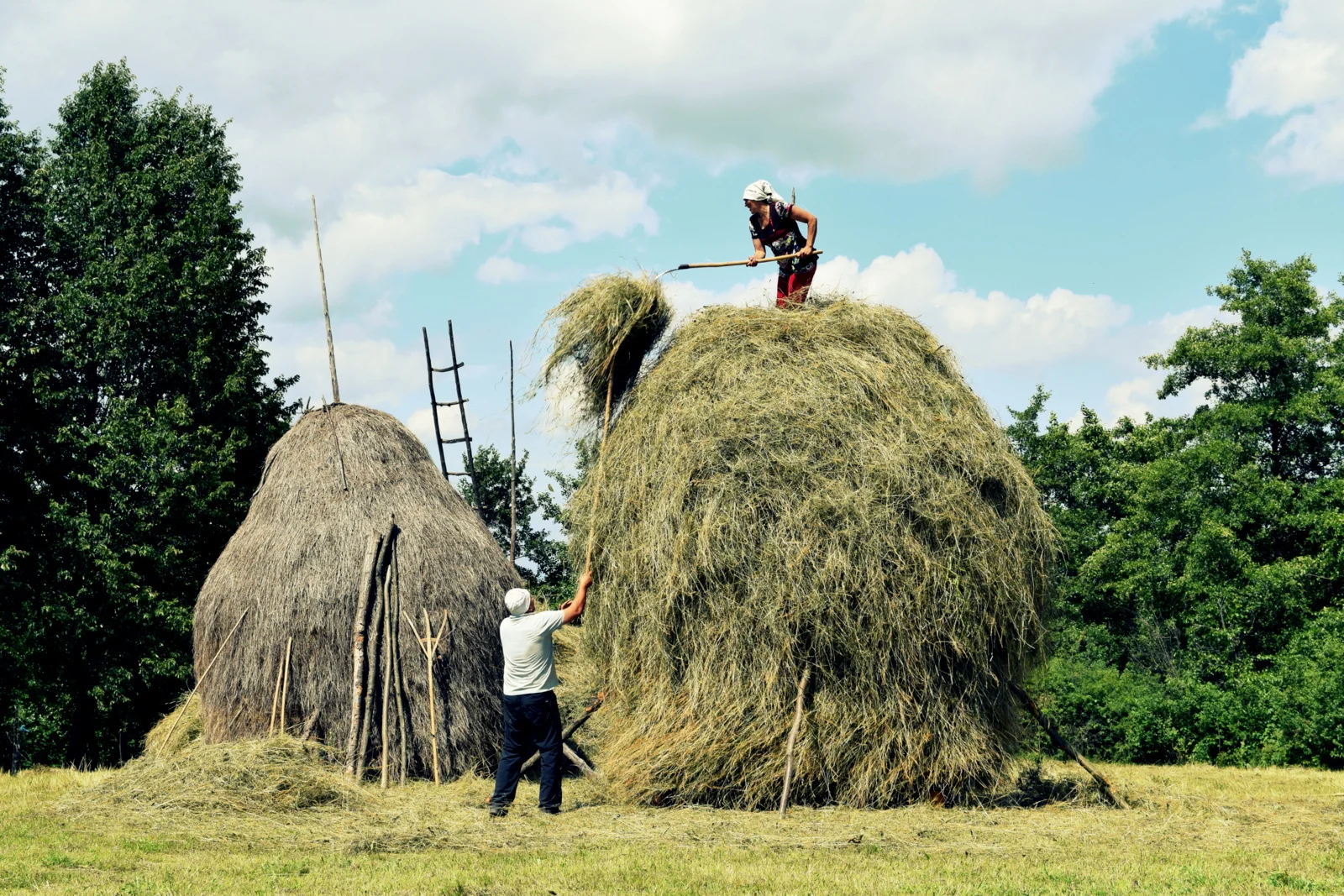In the depths of a frozen winter, horse-pulled sleighs or the more modern (one could argue: outdated) tractors and trailers, brought down loads of harvested trees from the surrounding snow-drenched woodlands. In two seasons temperatures rose from -15 ˚C during the night to more than +30 during the day, adding an extra layer of heat to our kitchen which is fuelled with a wood stove. Yet, the uncomfortably hot nights will soon return to layers of heavy blankets, just as the light of day will turn into long hours of darkness and dinners lit by hand-dipped beeswax candles.
The seasons march merrily along.
As much as we would like to proclaim that “summer is fun!” (perhaps the local schoolkids would like to say this as well), it is really a time of preparing for winter, and there is plenty of work for all ages and all abilities. Young children help their parents and grandparents out in the fields too, from sunup to sundown work is a family affair.
One season leads into another, and as quickly - or slowly - as the work is done, the next is ready to begin.
There is no summer break, there is only Sunday to provide a day of rest for weary backs and tired hands. Minimal work is allowed on this day - feeding the animals, milking the family’s one, two or three cows, and harvesting some fresh vegetables from the garden. Many dress up in their traditional Sunday best and wander down to the center of the village, while others choose the glass bottles and kinship at the bar over the altar at the church, and some locals opt for visiting family and friends because even in a small village where everybody knows everyone and many people are related by some act of fate or another, the land and the animals always take precedence.
Summer is as it has always been - the phase to prepare for winter.
Animals need to eat and stay clean in the stable, and hay is on the menu year-round. If there is an art to creating a beautiful and functional haystack, the people of Maramureș have perfected it and called it their own. With some haystacks reaching 4-5 meters in hight, it is usually the woman’s honour to stand atop whilst it is being built, being in control of packing the hay densely and forming the stack so that it can withstand rain, wind and snow or whatever nature throws at it.
Just how many hours go into creating a haystack? It greatly depends on the amount of active family members, whether the grass is scythed by hand or machine, and if it is the first, second or even third cut of the year. It’s idyllic to see the many haystacks dotting the landscape, but the unseen downside is the overabundance of hay, at the same time having fewer and fewer animals every year to eat it. The labour is that of love, and if it were not done the landscape would be seen as unclean, unkept, or wild.
In village life, there is a constant desire for balance set upon the eagerness to keep busy, if there is no work to be done, then work will be made.
Consumerism is not rampant here, yet many people have more than they need, and not everything that they want. With little money people are modest, yet extremely giving and generous in nature and their vast orchards and enormous gardens keep them busy, satisfied and fulfilled.
Breb is a fascinating place where giving and sharing is prevalent. Here you can buy (or often receive for free) bacon and potatoes from your neighbour or the little lady down the lane rather than shopping at the store and at this very moment eggs are in short supply because of the hot weather, yet the milk is always on tap in any stable, available at the morning or evening milking.
Nights are quiet, save for the random wild boar running down the gravel road, and the air is fresh and clean. Nature, fruit and hay are in ultimate abundance and now is the time to stockpile our winter supply.







